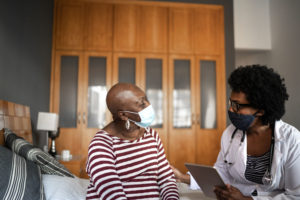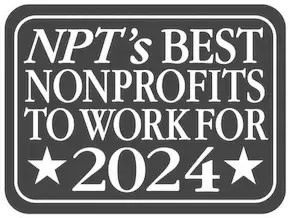2020 Annual Report Letter: Combating the Other Pandemic – Flattening the Curve for Social Justice
By Ellis Carr, President and CEO of Capital Impact Partners and CDC Small Business Finance
Last year I opened up my Annual Report letter with a reference to COVID-19. While we were still grasping the seriousness of the situation, we could never have realized the extent to which the pandemic would dominate almost every facet of our lives. Now, as vaccines continue to roll out and many begin to “return to normal”, what we feared then has become reality. Communities of color will be grappling with the long-term impacts for months, if not years to come.
Here are just a couple of examples of the toll these communities experienced.
Research by the Centers for Disease Control and Prevention (CDC) found Black, Hispanic, and Indigenous communities have experienced disproportionately higher rates of hospitalization and death attributable to COVID-19 than have non-Hispanic White persons. Similarly, the Center for American Progress, found these same communities experienced higher rates of unemployment for longer stretches of time even as the pandemic began to ease.
At the same time, communities of color faced a barrage of violence at the hands of the police and others – cutting shorts the lives of many young men and women. Ahmaud Arbery. Breonna Taylor. George Floyd. Rayshard Brooks. Andres Guardado. Deon Kay. Andre Hill. I could go on.
In response, rallies expressing civil disobedience sprung up across the country as communities made their voices for justice heard. As we watched on the news, however, these groups peacefully exercising their right to free speech were often met with an uneven response by local law enforcement and even National Guard troops activated by the federal government. We also witnessed a disturbing rise in far-right groups, many with ties to white supremacy, become increasingly vocal.
What we witnessed in 2020 illuminated inequities and systemic issues that have existed in this country for generations. It is critical to understand how these multiple impacts and triggers have negatively affected the mental and physical health of millions of people of color. The result is that these issues not only prevent communities from living healthy lives and having access to opportunities, but also directly affects the health of our nation overall.
It’s no wonder then that the CDC – along with a number of states and cities – made official declarations that racism is a serious public health threat which needs to be addressed so that communities of color can truly thrive and prosper.
The question remains then, what must we do to flatten the curve when it comes to issues of social and economic justice?
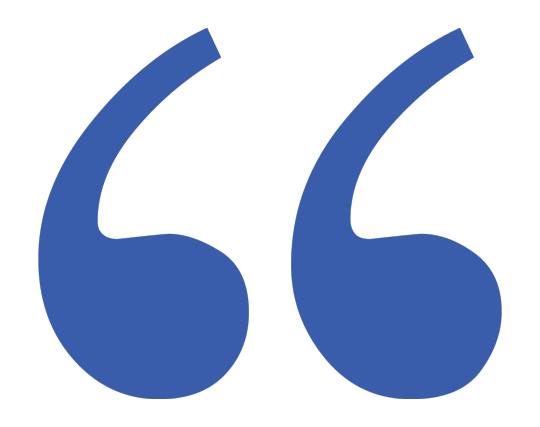
These events, among others, only illuminated inequities and systemic issues that have existed in this country for generations.
Responding to COVID-19
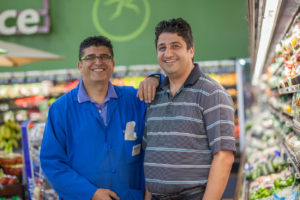
Sam Shina, owner of Imperial Fresh Market, retrofitted his store and purchased PPE to protect his employees and customers alike to maintain access to healthy food for the community.
While the above news was concerning, I was inspired by stories from our borrowers who immediately pivoted to ensure they could continue to serve their community. This includes Janelle Smitley who went above and beyond to help ensure her students at Detroit Achievement Academy didn’t fall behind, and Sam Shina who took on the costs of retrofitting his store and purchasing PPE to protect his employees and customers alike to keep his supermarket open.
To ensure that borrowers and community stakeholders were properly supported in their efforts during the pandemic, our team launched a number of initiatives to meet their needs and the needs of the communities they serve. In addition to the outline below, you can find a complete summary in our Annual Report section .
Our comprehensive COVID-19 response included:
- Reaching out to all of our current borrowers to understand their situations and take the steps to provide the necessary support;
- Launching a $25 million COVID Response Loan Fund specifically for community health centers – the true front-line heroes during the pandemic – with our partners at The California Primary Care Association. We also contributed to the Cooperative Development Foundation Disaster Recovery Fund, which focused on supporting home care co-ops;
- Making rental and relocation assistance available to renters through the Stay Midtown program with Midtown Detroit, Inc.;
- Providing $100,000 in awards to key partners in the Washington Metropolitan area through our DMV Good Food Fund Innovative Response Fund in order to sustain and stabilize mission-aligned good food enterprises.
An Exciting New Enterprise
While this immediate response was important, we also knew there the issues stemming from the widening gap of social and economic inequality needed to be addressed in a new way. The pandemic merely shown the spotlight on issues we’ve long known existed.
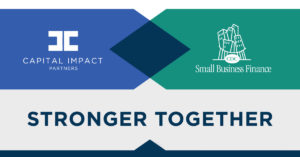
Our intention is to become a tech-enabled financial services company that stands with the community to create jobs, quality affordable housing, and essential services for communities across the country.
To tackle these challenges, we had long been working on a new approach to innovate how capital flowed into long disinvested communities to foster economic empowerment and community power.
The culmination of that effort was the rollout of the first phase of our strategy to align our operations with CDC Small Business Finance, the nation’s leading mission-based small business lender. Through this unique new enterprise, we are working to reinvent traditional and mainstream financial systems and ensure they are equitably serving Black, Hispanic, and Indigenous communities to drive community-led solutions that support economic mobility and wealth creation.
As this letter is published, I have assumed the president and CEO role at CDC Small Business Finance and integrated our management teams and boards so we can test our singular strategy in three pilot project cities; Washington, D.C., Detroit, and Los Angeles.

We knew that the issues stemming from the widening gap of social and economic inequality needed to be addressed in a new way.
Already, the reaction has been positive.
Several major donors have provided initial support because they recognize our unique ability to transform how capital and investments flow into disinvested communities. Leveraging our 80 years of combined experience and nearly $3 billion in assets, we know this is just the beginning in forming critical partnerships to help us achieve our vision of an equitable and just society.
We’ve also heard directly from one of our very first borrowers. Katrina Wilson, a successful African-American tenured salon manager, is now the proud operator of Crème Brulée in Detroit due in part to our ability to help finance her long-time dream. I invite you to listen to her own story in this video.
Please follow our journey at www.investedincommunities.org.
Listening to Communities to Create Impact and Systemic Change
Working with communities to understand their needs and respond with solutions that they need and value must not only happen in times of crisis. It requires us to center the voices and values of our neighbors in our day-to-day work and adjust accordingly. Throughout 2020, Capital Impact committed to our servant leadership approach by listening to our communities and identifying ways to help them create new solutions or enhance existing ones.

Our Diversity in Development – Detroit Loan Fund expands access to capital for developers of color, who have historically been kept from access to financing.
When participants of our Equitable Development Initiative expressed their challenges of accessing financing we engaged them to create and launch our Diversity in Development – Detroit Loan Fund to ensure a pipeline of capital for emerging developers of color. We had a good response in our call for applications and look forward to announcing who we will be working with in 2021. We have since done the same in the Washington Metropolitan area, creating a Diversity in Development – DMV Loan Fund.
Similarly, we also know that while Black communities have a rich history of utilizing the cooperative model as a key economic tool to advance their communities, they are underrepresented in the sector.
To that end, we deployed a new award program with our community partners at Wacif specifically for cooperatives in the Washington, D.C. Metropolitan Region. The winners ranged from Earth-Bound Building who is running intensive Timber Framing workshops for Black, Indigenous, women, and queer tradespeople to Bloc by Block News launching a news portal to The D.C. Pop-Up, a collaborative of D.C.-based makers who create products through the Made in D.C. program.
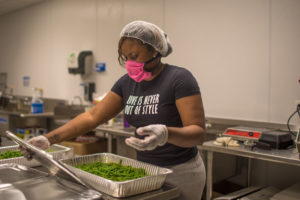
ChiFresh Kitchen rallied in the pandemic to offer food to its Chicago communities while creating opportunities for wealth-building for its worker-owners.
This effort builds on our Co-op Innovation Award, now in its seventh year. I was particularly impressed by one of our 2020 winners ChiFresh Kitchen, owned and operated by returning citizens in Chicago, primarily Black women. ChiFresh delivers prepared meals that are rooted in the culture and traditions of the people being served. While they could have delayed their intended project of expanding their commercial kitchen, they instead pushed forward in response to the COVID-19 crisis and its impact on Chicagoans of color and residents living with low incomes, providing a critical healthy food option for their neighbors.
You can learn more about their inspiring story in this interview and video.
Through all of this, we also knew that we must keep looking ahead to ensure that once the pandemic was over there was a pipeline of projects to keep communities on track for growth. I could not be more proud of the fact that our team closed more than $93 million in loans through 2020 to support 40 projects in California, Colorado, Michigan, Pennsylvania, Tennessee, Texas, and Washington, D.C.
These investments helped our partners serve nearly 500,000 members of their community. This included treating 400,000 patients, creating more than 1,500 affordable homes, delivering healthy food options to 14,000 customers, and adding the ability for schools to provide education to almost 5,000 students.
While our listen-first approach is core to our values, I was humbled that this approach resulted in the single largest individual gift in Capital Impact’s history. As part of a larger commitment, philanthropist MacKenzie Scott donated $15 million to advance our racial equity work nationwide. This gift provides enormous flexibility in our ability to support a broad range of community developed solutions that break down barriers to success.
Why I am hopeful
If there was ever a year to be discouraged about progress for social and economic justice, 2020 was most definitely that year. But as I look around, there are reasons to be hopeful.

In the face of injustice, communities across the country took to the streets to make their voices heard.
When the pandemic was at its worst, so many of our friends, neighbors, and colleagues stepped up. Health care workers, grocery store clerks, teachers, and a whole variety of individuals ensured that essential services continue to reach those who need them.
We elected this nation’s first vice president who is the first Black American, first Asian American, and first woman to hold this office. And, as a graduate of Howard University, she is also the first graduate of a historically Black college or university to serve in the office.
Meanwhile, President Biden’s “Build Back Better” platform included a pillar on racial equity and his administration sees CDFIs as a key partner in advancing that agenda.
In the face of injustice, communities across the country took to the streets to make their voices heard and worked to hold elected officials and law enforcement agencies accountable for their actions.
No doubt, great challenges remain ahead of us. And the pace of change feels all too slow.
But I ask you to remember that power exists within and all around each of us. The question is: do you have the strength to exercise that power?
As for me, I remain uplifted by the talented team, partners, investors, and community organizations that surround me.
Together we have the ability to change long established narratives and write an important new chapter for this country and our communities.
